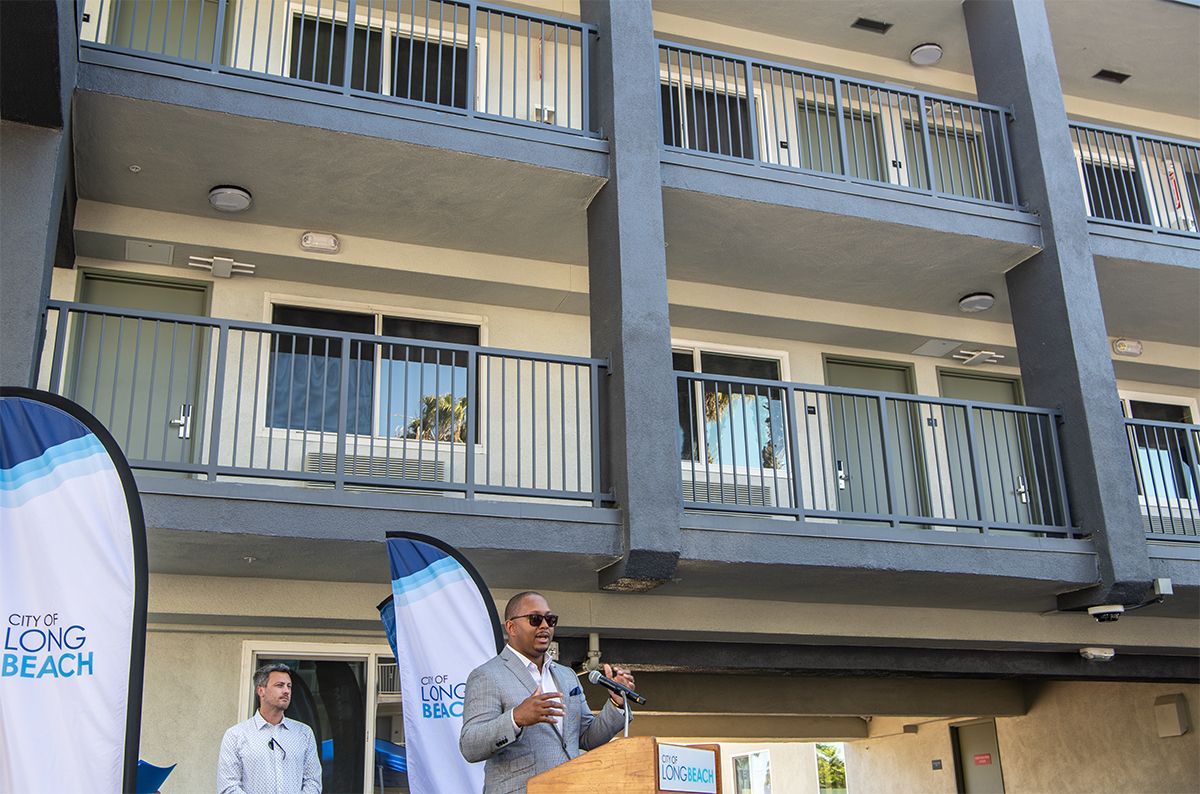A jubilant crowd of civic leaders, planners and social workers gathered Wednesday to celebrate the conversion of a North Long Beach motel to a shelter for the homeless.
About three years after its purchase for $16.6 million, the former Luxury Inn, once a rundown lodge, was reintroduced to attendees with a $6.5 million facelift that included everything from major structural work and flooring to drapes, bedspreads and a pastel blue and gray exterior.
The 78-unit shelter will begin moving people inside next month and cost $2.3 million annually to operate. Paul Duncan, director of the city homeless bureau, said those admitted to the shelter will be permitted to stay up to a year while they train to re-enter society, working toward jobs, consistent health care and permanent housing.
Priority will be given to those deemed “chronically homeless,” meaning they’ve been unhoused for at least a year or at least five times in the past three years. The city will also set aside 20 rooms for those living along the Los Angeles riverbed.
Each room will be accessed by keycard and come with a bed, dresser, television, fridge, microwave and full bathroom.
The nonprofit First to Serve, the contractor managing the property, typically has a 9 p.m. to 10 p.m. curfew window.
“We do not expect people to be living the rest of their life here,” Duncan said. “It is a momentary place where they can start to focus on healing.”
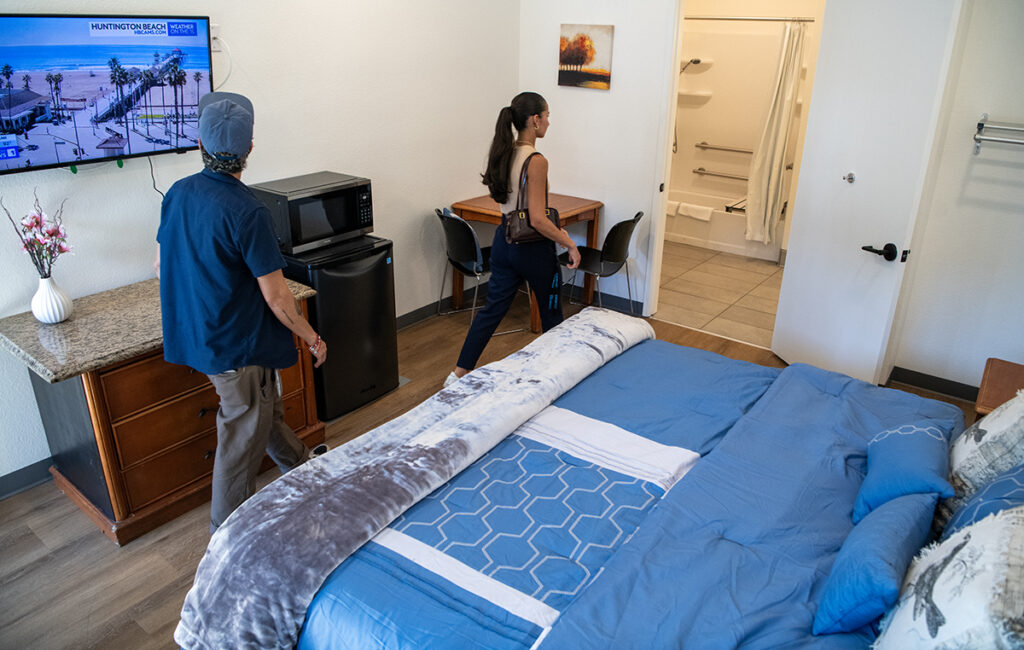
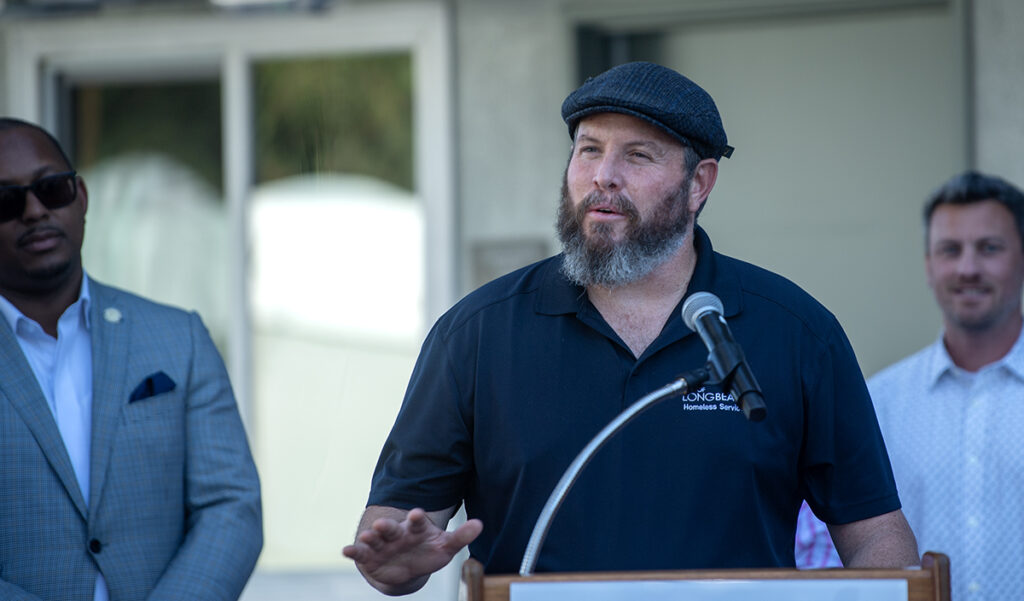
Citywide, it took an average of 251 days for someone in 2024 to be placed in permanent housing — triple the time it took in 2020. But the time it takes for people in interim housing to find a permanent place to live has decreased steadily since 2022, from 246 days to 136 days in 2024.
The former motel was one of six the city listed as among the most notorious for the highest number of police calls — and the most violent calls — as nuisance motels.
Between January 2014 and May 2017, it racked up thousands of 911 calls and logged 800 crimes, including a murder in 2017. It was purchased by the city in 2022.
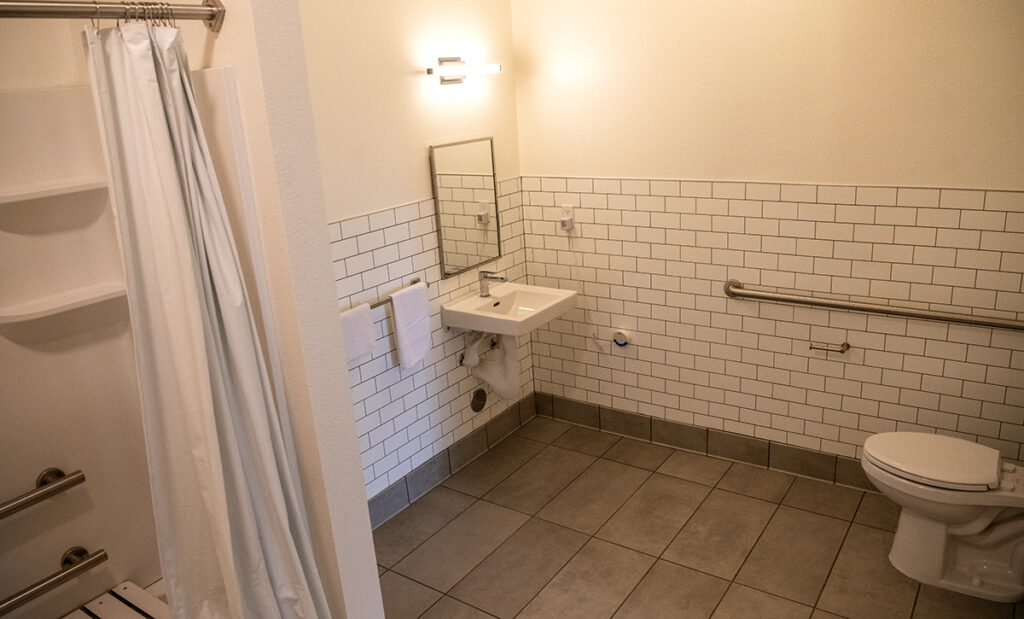
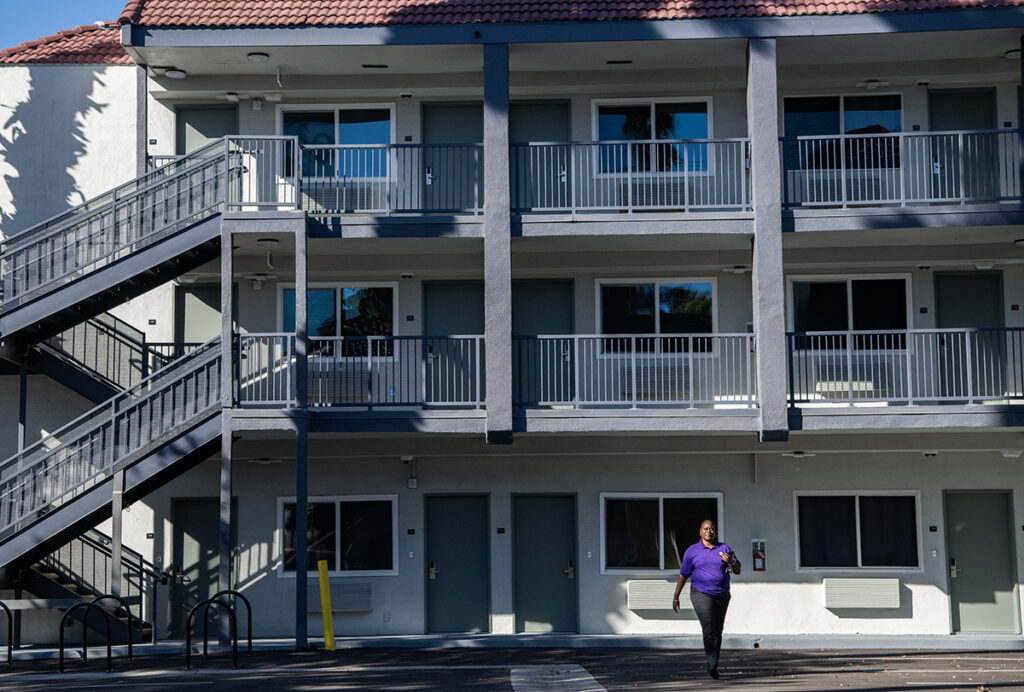
“I lived right around the corner for about nine years, right around the corner, and this was, you know, not the best shape,” said Mayor Rex Richardson. “It was a haven for human trafficking and violence and a number of things were at this site.”
Its purchase was meant to serve the interlocked goals to root out nuisance motels while also finding cheap and accessible spots to quickly house people from off the streets, but it didn’t go as smoothly as hoped, as it languished through delays in construction.
According to public works officials, the building was discovered to have years of deferred maintenance that contributed to a four-month construction lag. The project manager said the motel was “one of the worst conditions they’ve seen a building in,” according to a city spokesperson, including wood rot, mold, faulty plumbing, uneven flooring and a non-existent fire system.
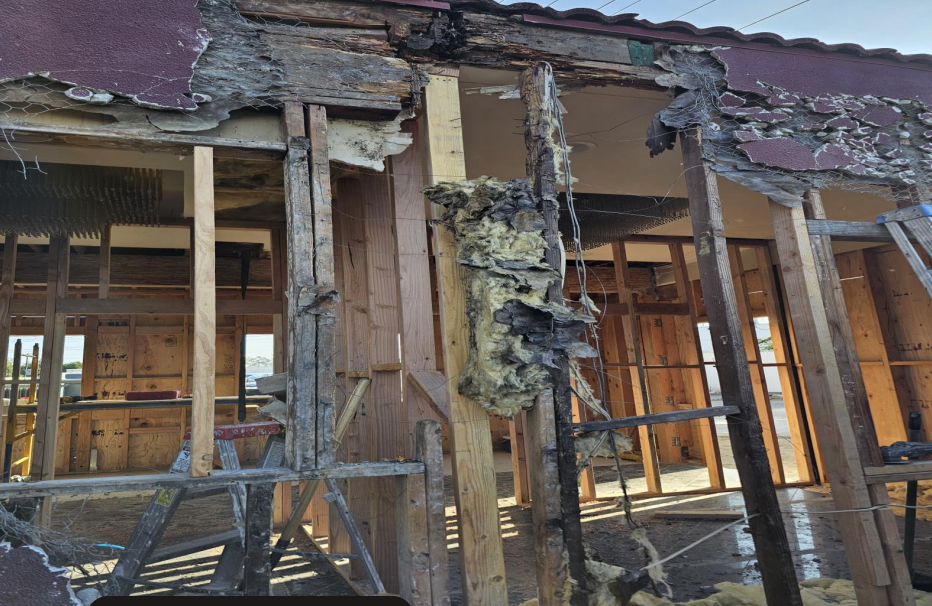
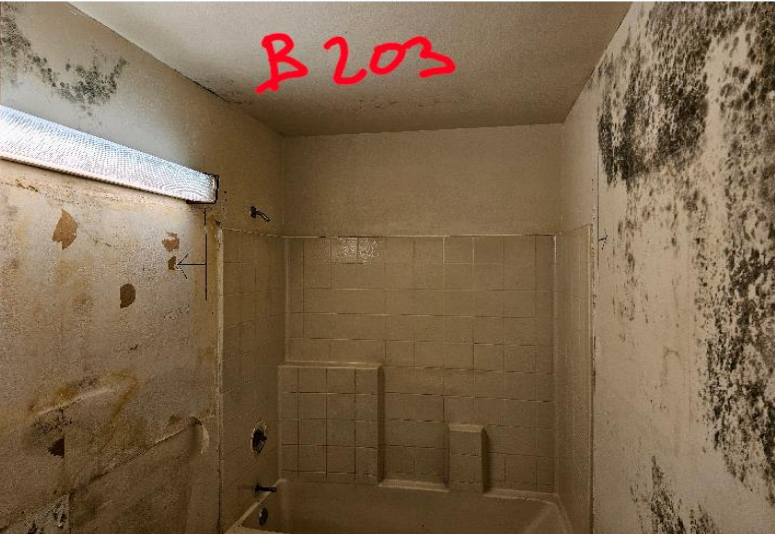
The project is the fourth paid for by Project Homekey, which is administered by the California Department of Housing and Development as a statewide effort to get homeless people off the streets and into interim housing by converting unseemly properties into facilities.
Other locations are in Downtown and Central Long Beach, as well as a Motel 6 near Cal State Long Beach that, together with the city properties like the multi-service center, county shelters and master leases for temporary sites, house more than 1,500 people citywide at a time. The city can also shelter around 30 households per night in motels.

